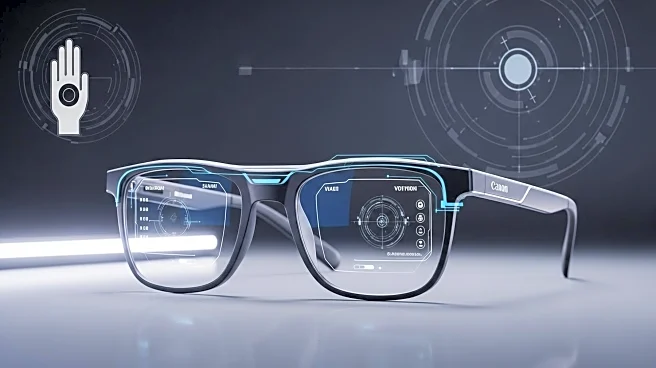What is the story about?
What's Happening?
Meta has unveiled its new Ray-Ban Display glasses, which feature a high-resolution, in-lens color display capable of showing messages, notifications, navigation guidance, and real-time language translation. The glasses include a built-in camera for capturing images and videos and can function as a music controller when connected to a smartphone. A key innovation is the Meta Neural Wristband, which uses electromyography (EMG) to detect muscle movements, allowing users to control the glasses through tiny finger gestures. The glasses are available with prescription lenses and are set to retail for $800, with a release date scheduled for September 30th.
Why It's Important?
The introduction of Meta's Ray-Ban Display glasses marks a significant step in wearable technology, potentially shifting consumer reliance from smartphones to smart glasses. This development could impact the tech industry by introducing new ways for users to interact with digital content and devices. The gesture control technology offers a hands-free experience, which could appeal to users seeking convenience and efficiency. Meta's move into this market may challenge existing smartphone giants like Apple and Google, potentially altering competitive dynamics in the tech sector.
What's Next?
As Meta prepares for the release of its Ray-Ban Display glasses, the company may face reactions from competitors and consumers. Tech enthusiasts and early adopters are likely to test the new product, influencing its market reception. Meta's success with this launch could lead to further innovations in wearable technology, prompting other companies to explore similar advancements. The glasses' performance and user feedback will be crucial in determining their long-term impact on the market.
Beyond the Headlines
The introduction of gesture-controlled smart glasses raises questions about privacy and data security, as the device's camera and sensors could potentially capture sensitive information. Ethical considerations regarding user consent and data protection may become focal points in discussions about wearable technology. Additionally, the cultural shift towards hands-free devices could influence social interactions and communication norms.















